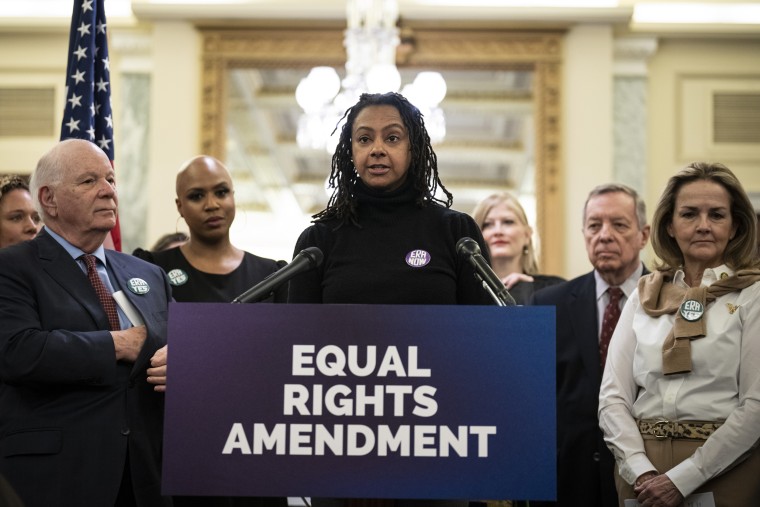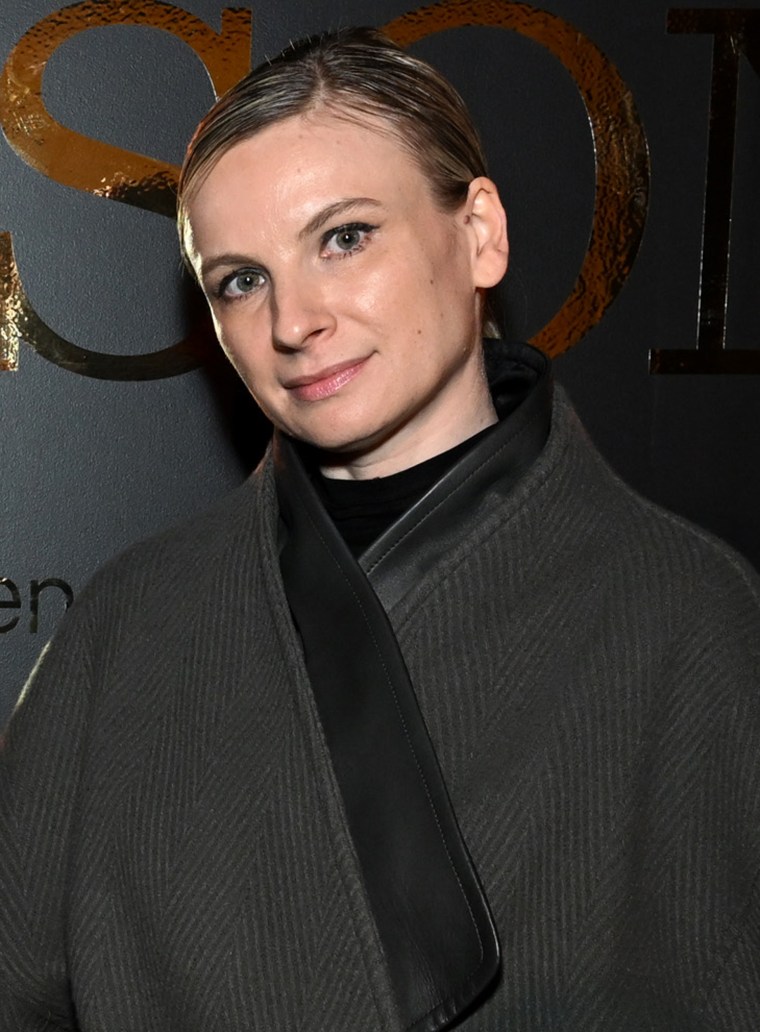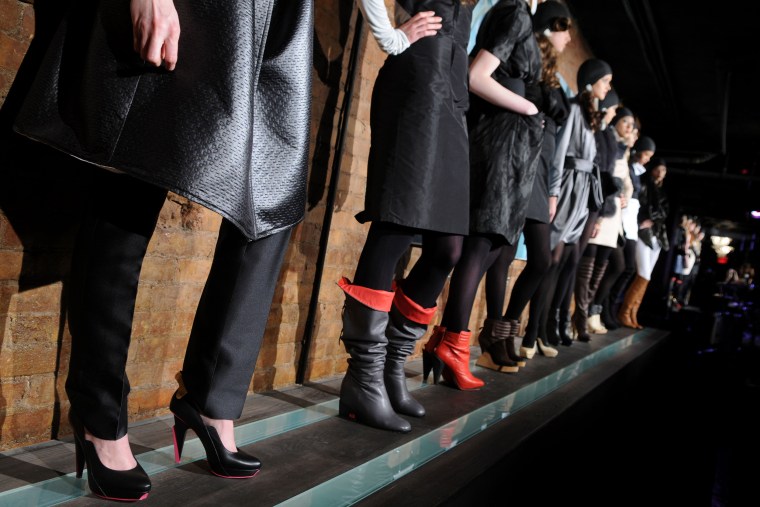It has been 100 years since the Equal Rights Amendment — which would constitutionally guarantee gender equality for men and women — was first introduced. Yet, the legislation remains stalled, even as proponents say the amendment is more important than ever in a post-Roe America.
To push that message across during New York’s Fashion Week, the fashion brand KZ_K Studio is teaming up with the ERA Coalition, which is comprised of nearly 300 organizations, to bring together leaders in the fashion industry with leaders of the ERA movement to expand awareness and mobilize for equality.
“The Equal Rights Amendment is essential to ensure that women receive pay equity in all sectors and the fashion industry is no different,” Zakiya Thomas, president of the ERA Coalition. “Men still hold the positions of power, and women continue to be paid less for doing the same work.”

According to a recent McKinsey survey, even though the majority of entry-level fashion jobs are occupied by women, less than 50 percent of well-known womenswear brands are designed by women, and only 14 percent of major brands have a female executive in charge.
It’s part of the reason why KZ_K Studio is holding a fundraising event with the ERA Coalition in New York City on Wednesday evening. There will be a panel discussion featuring leaders in fashion and gender equality, including Thomas, KZ_K Studio creative director Karolina Zmarlak, ForbesWomen editor Maggie McGrath and more. They’ll discuss the intersection of the Equal Rights Amendment and arts and culture. Proceeds from the event will go to the ERA Coalition’s fundraising and awareness campaigns.
Zmarlak noted that gender inequality in the fashion industry is rampant. “Women are the owners of the factories that we work with, or the pattern makers — and they’re the entrepreneurs of very technical work…And yet what you still see is a large percentage of the top workforce, as far as the CEOs or the presidents of companies, are men,” said Zmarlak.

“At the end of the day, if I am someone who becomes technically sound and had the same amount of experience and work under my belt and can execute in an equal or more expansive way than a male counterpart, there should never be a question in my mind why I would have equal pay, or equal rights, or equal level of respect and placement … And so for there not to be a statement that is ratified into a law … it’s way overdue. It’s time…”
Women’s suffrage leader Alice Paul first drafted a version of the ERA in 1923. It was eventually tweaked to state that: “Equality of rights under the law shall not be denied or abridged by the United States by any state on account of sex.”
Congress first greenlit a resolution formally proposing the amendment in 1972, requiring 38 states ratify it before it would officially part of the U.S. Constitution. Lawmakers set a seven-year deadline for that to take place, and eventually extended it for another three years.
Only 35 states adopted the amendment by the 10-year deadline. However, in 2020, Virginia became the 38th state to ratify the amendment (although it was four decades after the initial deadline). The House voted in 2020 and 2021 to remove the expired deadline and make the amendment part of the Constitution, but the Justice Department, under then- President Trump said it would not be possible because the deadline lapsed. Democrats have since tried to revive the measure.
Republicans have argued equal protections for women are already included in the 14th Amendment. And other critics of the ERA believe is passage could provide legal rationale for protecting abortion in the aftermath of Roe v. Wade being overturned.
Former Rep. Maloney, who is currently a board chair of the ERA Coalition argued that “when women succeed, America succeeds.” She added, “But it is a dark reality that the gender pay gap still exists in America. Over a lifetime of earnings, this disparity compounds, and contributes to older women’s place as the largest population living in poverty. To close the gap, we need to recognize the ERA as the 28th Amendment to the Constitution. That what way we can enforce equal pay for equal work, and combat gender discrimination at all levels.”
